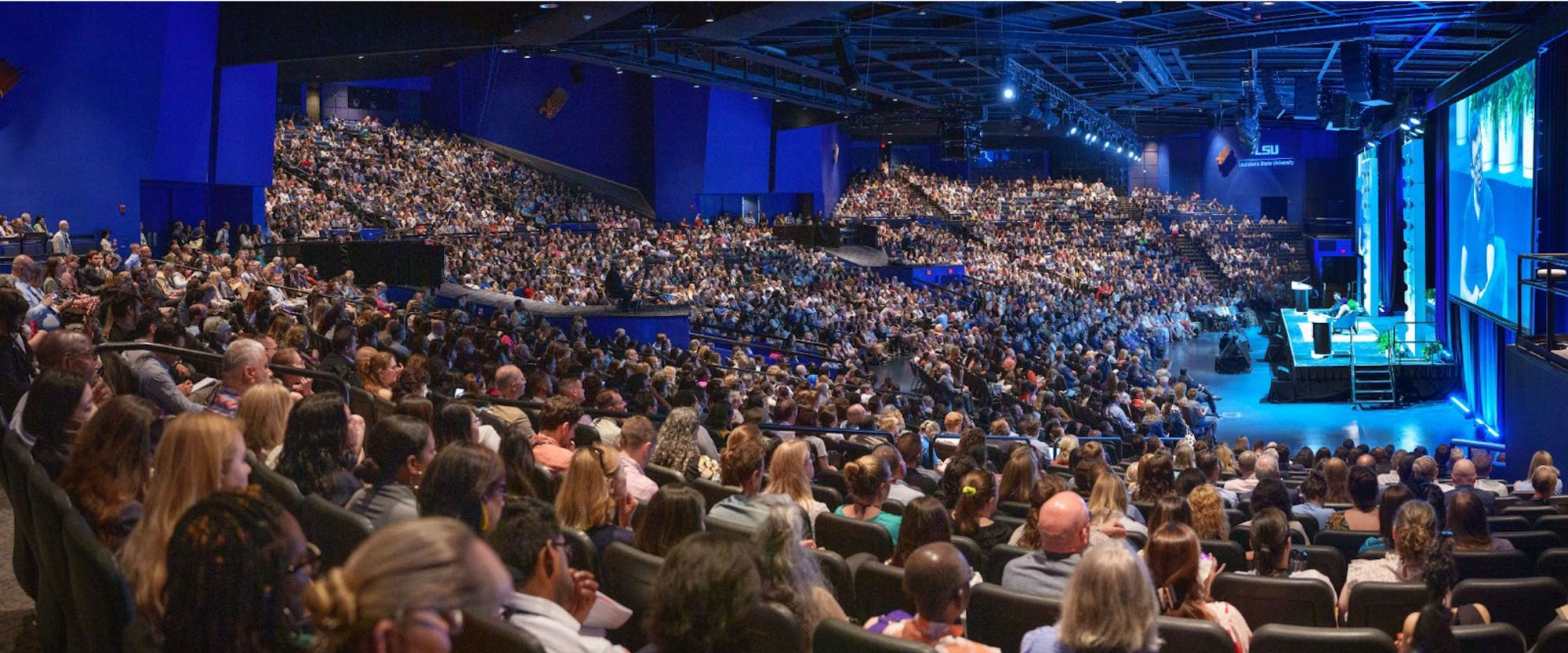The Duolingo English Test team recently participated in the annual NAFSA conference, the largest international educators' conference in the world, in New Orleans, Louisiana! The conference was an ideal platform for us to engage with global education leaders and share innovative solutions for language learning and assessment — two key components of an international student’s educational journey. Here are our five biggest takeaways from the conference!

1: Mary Maker's advice: Transform challenges into opportunities
We couldn’t be prouder of Mary Maker—UN Goodwill ambassador, recipient of Duolingo's 2022 We Rise Together award and a regular presenter at the annual DETcon events—for sharing her story as a spotlight presenter. A refugee herself, Mary provided powerful insights into the educational needs of refugees as she shared stories of her readjustments, from arriving at a refugee camp in Kenya to attending boarding school in Rwanda, and eventually to completing degrees in theater and political science at a US college. Maker's advocacy underscored the importance of lowering barriers to access for marginalized communities––something DET’s access program is committed to achieve.
2: Luis von Ahn's keynote: A personal journey to democratize education
Luis von Ahn, our CEO and co-founder, was a star at the NAFSA keynote. He shared his inspiring story with more than 9,000 international educators from 100 countries who are committed to supporting international students. Coming from Guatemala, Luis’s experience as an international student first at Duke University and later at Carnegie Mellon University was pivotal in shaping his understanding of the inequities that exist in education, and led him to eventually create Duolingo to help make education drastically more accessible to millions.
For colleges and universities eager to promote access and diversity, the key takeaway from Luis’s keynote is the vital need for equal access to education. Luis shared a personal story about the challenges he faced taking the TOEFL, which required a lot of money, time, and travel outside of Guatemala due to the scarcity of test center infrastructure in his home country. This experience was a driving force behind the creation of the Duolingo English Test, a fully digital exam that lets students prove their English skills without the hassle and expense of traveling to a test center. By making English proficiency testing more accessible, Luis explained how Duolingo is helping to diversify the pool of qualified candidates for higher education institutions globally.
Following Luis’s keynote address, he had the chance to engage with 30 higher education leaders from the UK, US, Canada, Australia, and Italy to discuss the role of digital technologies in addressing some of the most pressing issues facing education. Through a roundtable discussion, participants explored how innovative solutions can enhance international student mobility and create more inclusive educational environments.The remaining insights are drawn from this discussion.
3: Technology is preparing students for the future
Roundtable participants felt hopeful about the promise of digital technologies in solving some of the industry's most pressing issues, such as accessibility, personalized learning, and skill development for the jobs of the future. Participants shared examples of impressive technological innovations, which ranged from delivering pre-arrival orientation courses virtually so students are prepared in advance, to virtual reality labs providing simulated experiences, to AI providing customized support to students with disabilities.
4: Digital testing breaks down barriers
The roundtable also highlighted the accessibility provided by digital assessments, like the Duolingo English Test. For international students intent on studying at English-medium universities, proving their English proficiency is an essential part of their university applications—but often a challenging one, due to expensive fees and rigid structure of many traditional proficiency tests.
At the conference, we explained that unlike traditional English proficiency exams that require testing to take place during fixed appointments at test centers, the DET can be taken from anywhere, at any time. This flexibility allows students in over 70,000 towns, cities, and villages around the world to demonstrate their English proficiency, making higher education more accessible to a diverse range of students.
5: It's necessary to balance innovation with digital literacy
Educators at the roundtable emphasized the need to balance technological innovation with efforts to improve digital literacy–for students and educators. Participants noted that students enter university with varying levels of digital skills, influenced by their backgrounds and access to technology. By auditing the types of devices students use to consume content and focusing on staff development around AI, institutions can ensure that all students benefit equally from digital education. This approach maximizes the potential of technology while addressing the diverse needs of the student population.
This year's NAFSA conference highlighted the role of digital technologies in shaping the future of international higher education. By focusing on accessibility, innovation, and inclusivity, Duolingo and the Duolingo English Test are helping to create a more equitable and connected global learning community.
